Youth Chaplain: Rev. Fr. Thomas Makandwe Email: youthministry@ndoladiocese.org Mobile:0975839620
Youth Coordinator: Br. Maria Joseph Phiri Mobile:0979325074
The Diocesan Youth Ministry is a programme under the Pastoral sector of Catholic Diocese of Ndola and it covers the entire Copperbelt province of Zambia. The province comprising eight districts within which we have ten deaneries.
The Youth Ministry is charged with the responsibility to animate, promote and coordinate activities organised by youth structures and communities in the Diocese and help adults, parents and church leaders understand and perform their roles towards helping young people to grow as mature and responsible Christians and citizens.
The Youth Ministry has a Youth Centre in Itawa area in Ndola, which is a resource and coordination Centre for the youths in the Diocese. The centre was established in 1986 with a team to try and organise youths in the Diocese.
- Vision
The Diocesan Youth Ministry of Ndola on the Copperbelt province, dream of a society where all the youths will attain integral development (i.e. Social, Civic, Political, Economic, Gender, Family, and Christian values) and Participate positive in the youth Ministry Church and society at large.
- Mission
The Diocese Youth Ministry of Ndola on the Copperbelt province inspired by the challenges and problems facing the Youth wishes to promote youth integral development through participatory, self – sustainable Programmes, in partnership with statutory and voluntary groups and institutions which aim at empowering young people to understand and act on the personal, social and political issues which affects their lives.
- Overall Objectives
The overall goal of the Youth Ministry is to facilitate and co-ordinate Youth integral development by increased awareness on social, spiritual and economic development through utilization of their efforts and available resources. This is aimed at enabling and empowering the youth to participate in designing their own destiny.
- Specific Objectives
The Youth Ministry has five main specific objectives, which direct the programmes embarked on. These are as follows:
- To facilitate the acquisition of life skills and job creation opportunities with a view to address the problem of unemployment by offering alternatives through empowerment and vocational skills.
- To create awareness in students in secondary schools, colleges and universities as well as parish students` communities on various issues affecting them, especially those of social injustice.
- To sensitize youths on their rights in social, economic and political fields so as to appreciate their roles for integral development.
- To enhance spirituality among the youths through personal re-examination in encountering Christ and help them appreciate the teaching of the church in order to increase their participation.
- To facilitate youth formation and transformation of attitudes and behaviours so as to promote life values.
The above have given rise to five sub programmes; namely:
Sub-Programmes;
The Youth Ministry is involved in the following sub programmes.
- Youth Development Programme
This programme is aimed at facilitating the acquisition of life skills and job creation opportunities. This is a programme targeted at the out of school Youth and unemployed Youth.
Activities
Facilitating Development Awareness talks in Parish communities, including identification of viable projects for youth and Capacity building & Leadership Training of groups
- Students Animation
The aim is to create awareness in students on various issues affecting them, especially those of social injustice. This is targeted at institutions of learning which include secondary schools, colleges and universities as well as parish students’ communities. They reflect on their roles as young people in the evangelization of students in their environments.
Activities
Study sessions, Work camps, Discussion on various topical issues.
- Spiritual Formation
Aimed at enhancing spirituality amongst the Catholic Youth and helping them to appreciate the teachings of the church in order to increase their participation and make them better Catholics.
Activities
Retreats (Yes, Search & Tailor Made) Seminars on Church Doctrine, History and social Interpretation of the Gospel, Bible quizzes, Holy childhood programmes (children’s Spiritual Formation)
- Education for Life
The aim of this programme is to facilitate youth formation and transformation of attitudes and behaviors so as to promote life values. In this programme the main issue is the fight against the spread of HIV/AIDS among young people in schools and communities regardless of religious denominations.
Activities
Behavior Change Programmes, Adventure unlimited programme, Life skills, HIV/AIDS talks, Insaka ne Cibwanse (Morality Issues for Young people)
- Governance & Advocacy
The aim is to sensitize youths in communities and schools on their rights in social, economical, and political fields so as to appreciate their roles for integral development.
Activities
Talks on Human Rights awareness, Children’s rights especially against abuses
- Administration
- Diocesan
At the Diocesan level the programme is run by Youth Chaplin; Rev. Fr. Thomas Makandwe and the Diocesan Youth Coordinator; Br. Maria Joseph Phiri. In conjunction with the two are various teams of young people for various activities which fall under the Diocesan council for Catholic Youth.
- Deanery & Parish
In all the deaneries and parishes we have teams of young people with their chaplains and animators who run activities for and with the Youth in the various programmes.
The Youth Ministry’s structure stems from the Small Christian Communities within a parish Youth Council. Parishes in nearby areas form zones, which make up deanery Youth Councils. Representatives of the five deaneries make up the diocesan Youth Council. The Diocesan Youth Council has an Executive team which assists the Youth Office staff in the implementation of activities.
Collaboration and Linkages
The Youth Ministry as a whole is a branch of the Pastoral Department of the Diocese of Ndola. Therefore most of the activities done by the Youth ministry are in line with the Pastoral mission of the Diocese to meet the Spiritual needs of the young people. The youth ministry also collaborate with the Health department of Ndola Diocese under Children development to cater for the social needs of the young people. The Ministry also work with the Ministry of Youth in the government to connect the youths to national development.
Implementation of activities
- Leadership workshop– these workshops are held to impart youth with leadership skills and for leaders capacity building. These are done in parishes, deaneries and the Diocese. These workshops are also done in lay groups and families.
- Diocesan youth council meetings – the Diocesan youth council meeting is held twice in a year mid and end of year. The council meeting are held to evaluate activities and plan for future events in this meeting deanery leaders and animators and Diocesan family and lay group leaders attend. The meeting is conducted by the Diocesan Council for Catholic Youth (DCCY) leaders. The Chaplain and the Coordinators are ex-officials.
Diocesan Youth Day (DYD) – The Diocesan Youth Day commonly known as the DYD was born from the experience of the World Youth Day ( WYD) in 2002. The idea was then endorsed by the diocesan council meeting. It was agreed that the DYD would be held on first Saturday of May every year but this was later changed to second Saturday of May.
In Ndola Diocese the event started in 2003 up to 2013 after which the event is held every two years. This was due to demand from the youths to have the DYD for three days instead of one day as it was held from 2003 to 2012.
This is a diocesan spiritual youth event where all the youths, animators, Chaplains in the Diocese attend. The aim of DYD is bring the youth together interact socially , spiritually and morally through the activities which are done during dyd.
The number of youths attending the DYD keeps on increasing from 700 hundred when it started in 2003 to 6000 in 2015. The DYD is always celebrated under a theme which is extracted from the main theme of the Church that year.
THE DIOCESAN YOUTH CROSS
The Diocesan Youth Cross that accompany the DYD event is the replica of the World Youth Day Cross which was given as the gift to the young people in the Church throughout the world in 1984 in Rome by His Holiness Pope John Paul II. The World Youth Day Cross has many names: the Jubilee Cross, the Pilgrim Cross and the Youth Cross. It was entrusted to the youth as they were given the commission to “carry it throughout the world as a symbol of Christ’s love for humanity and announce to everyone that only in the death and resurrection of Christ can we find salvation and redemption”. The Cross set out with the young people from St. Peter´s Square in 1984 has since been carried around the world, making a pilgrimage from parish to parish, diocese to diocese, and country to country. In 2006/2007 the Cross reached Zambia and Ndola Diocese and over 5000 youths gathered at Ibenga Marian Shrine to celebrate this gift of Love.
From this experience Bishop Noel O’Regan thought it was important to give this Cross to the Youth of Ndola Diocese which would carry the same significance as the World Youth day cross. During the 9th DYD in Ibenga Marian Shrine the Diocesan Youth Cross was given to the Youth of the Diocese by His Lordship Bishop Dr. Alick Banda. Since then it has been accompanying the activities of DYD and going around the Parishes as the Symbol of Christ’s Love for humanity
Behaviour Change programmes-
programme aimed at enhancing behaviour change among youths. The program has the following objectives.
- To facilitate the acquisition of life skills and job creation opportunities with a view to address the problem of unemployment by offering alternatives through empowerment and vocational skills.
- To create awareness in students in secondary schools, colleges and universities as well as parish students` communities on various issues affecting them, especially those of social injustice.
- To sensitize youths on their rights in social, economic and political fields so as to appreciate their roles for integral development.
- To enhance spirituality among the youths through personal re-examination in encountering Christ and help them appreciate the teaching of the church in order to increase their participation.
- To facilitate youth formation and transformation of attitudes and behaviours so as to promote life values.
- Diocesan Animators Day (DAD) – this is a day when animators from all the parishes of the Diocese meet to socialise and have mass with the Youth Chaplain.
- Diocesan Sports Day (DSD) – The Diocesan Sports Day (DSD) which was held on 10th October 2015 in Mufulira deanery. The Diocesan Sports Day (DSD) is an event which is held every year for the youths in various deaneries. These youths come together to show case their talent and skill and compete in different categories of sport. This year the sports categories included netball, basketball, volleyball and football. This year all the 10 deaneries were present with a total number of 728 youths approximately. The head count of animators was 46.Prior to the DSD event 4 preparatory meetings were held and the last meeting was held on the eve of DSD. During the first 3 preparatory meetings the rules and prizes were discussed together with logistics for the event. Each deanery was requested to pay K700 as participation fees for the event. Committees were formed to ease the running of the event. Mufulira deanery organised the event very well and all logistics were in place
Limburg partnership
For about 33 year now the catholic Diocese of Ndola has been in Partnership with Catholic Diocese of Limburg in Germany, the partnership which involves exchange of culture, language, food, faith and values. In this partnership, we also have exchange program on volunteer service. In this Program we receive two volunteers every year from Limburg Diocese and Send two volunteers from Ndola Diocese to Limburg Diocese for Volunteer Service. This program is there to strengthen the partnership ties between the two Dioceses.
Youth Ministry Future plans
Contraction of a Multipurpose thatched shelter.
For the youth ministry, the youth centre has been looked at as a place fool of potential and as a much needed source of income for the youth program. This would also be a great initiative towards sustainability of the youth ministry.
This mult-purpose Thatched Hall or shelter will be used for youth activities like concerts, talent shows as well as hiring out for weddings and kitchen Parties. This will bring some life at the youth centre. Our desire is to make the Youth Centre as active and alive as possible and a place where the youth would always wish to be for interaction.
Contraction of the Youth Village
The Catholic Diocese of Ndola Youth Ministry Expands everyday hence the facilities at the youth Centre in Ndola cannot accommodate the much needed activities of the young people in the Diocese especially those for youth empowerment like skills training.
Therefore, the youth ministry has found a place to construct a youth Village which will have all the facilities needed by the youth which can host activities like Diocesan Youth Day (DYD). At the moment the youth ministry is looking for stakeholders to partner with in the Contraction of Youth Village.
Financial Management.
As a ministry we have subjected ourselves to a number of projects for self sustainability. Among these include ;
- gardening which is located at the youth center in Itawa.
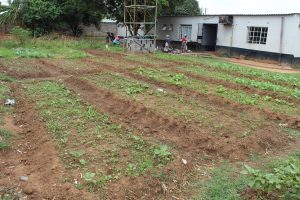
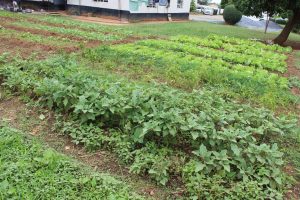
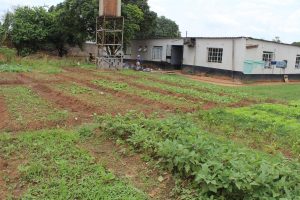
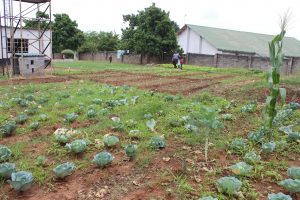
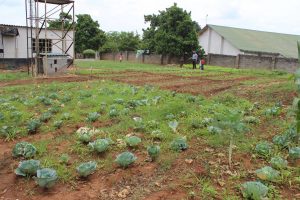
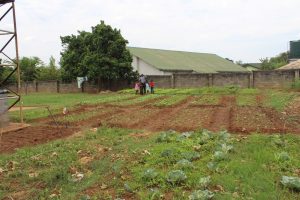
- running of a computer lab where we offer computer lessons were we award students with certificates upon completion.
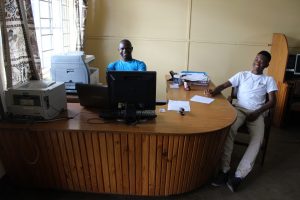
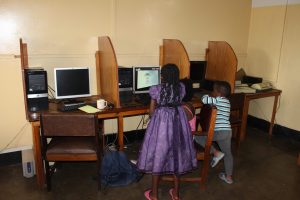
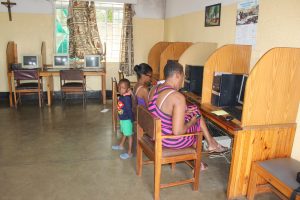
- We have taken advantage of the Youth Center grounds and hire it out for functions as; a means of fundraising.
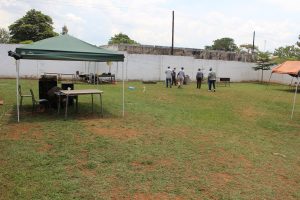
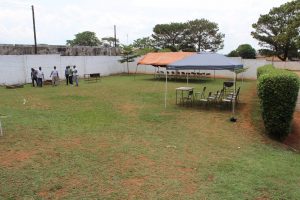
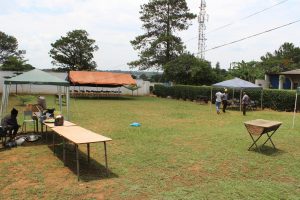
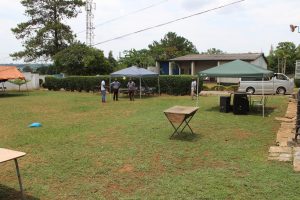
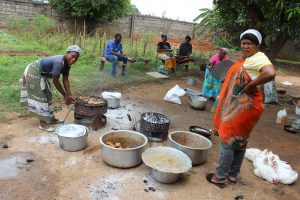
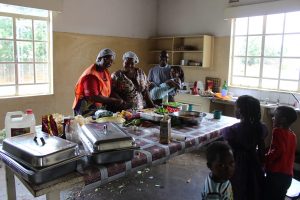
- Further , we also run a primary school called St. Kizito in Kitwe.
- we mainly relay on 15% monthly faith card parish contribution as our major source of income.
- we have also embarked on holding the initiative of doing fundraising ventures such as choral(singing Festivals) as an added way of sustaining our coffers.
Our budget is mostly determined by how much is in the coffers as well as the flow of planned activities , and to this effect we tentatively make quarterly budgets in a year.
